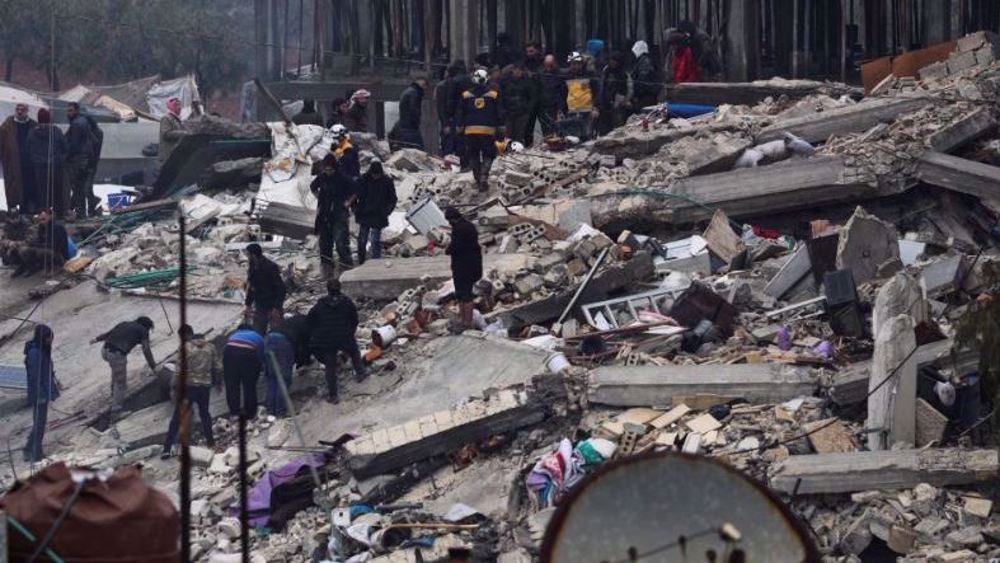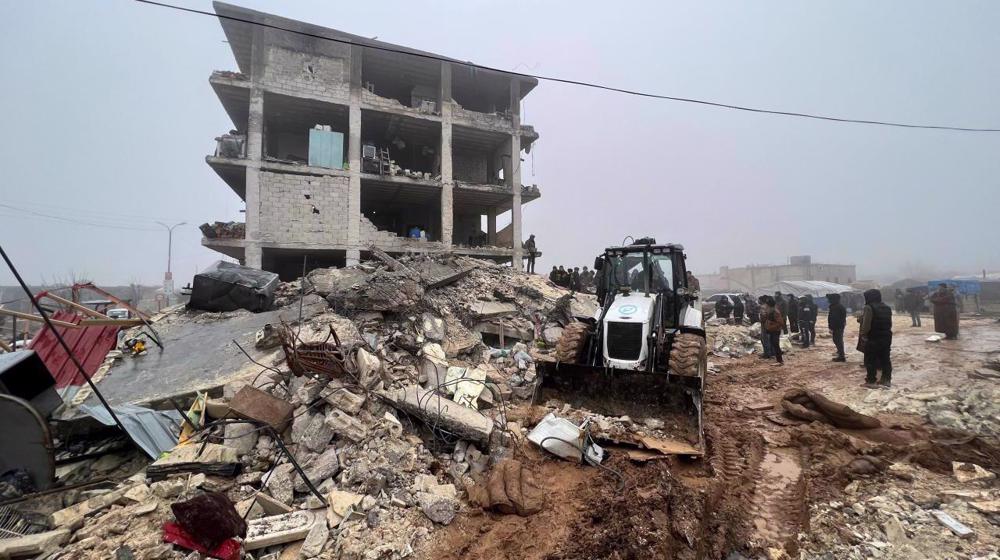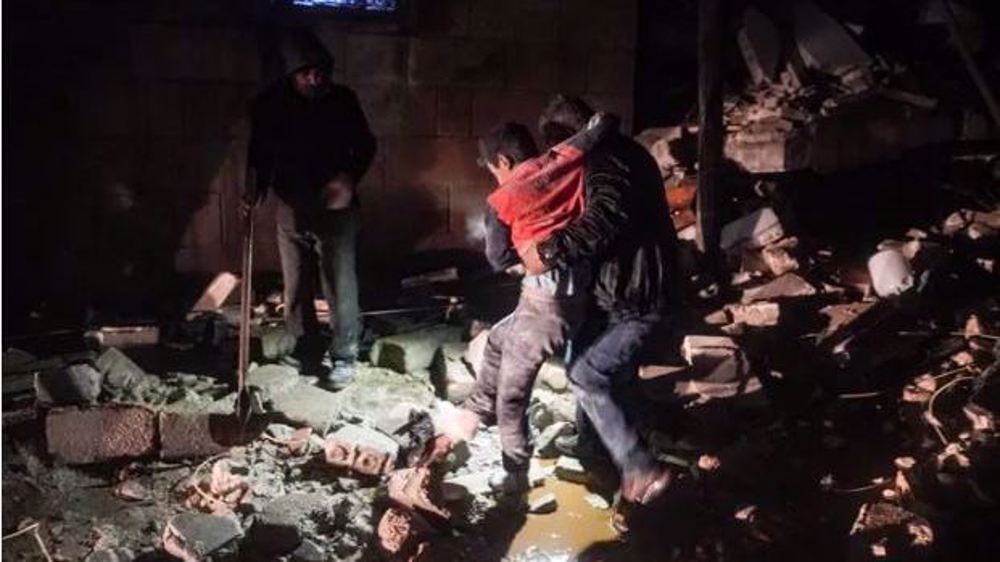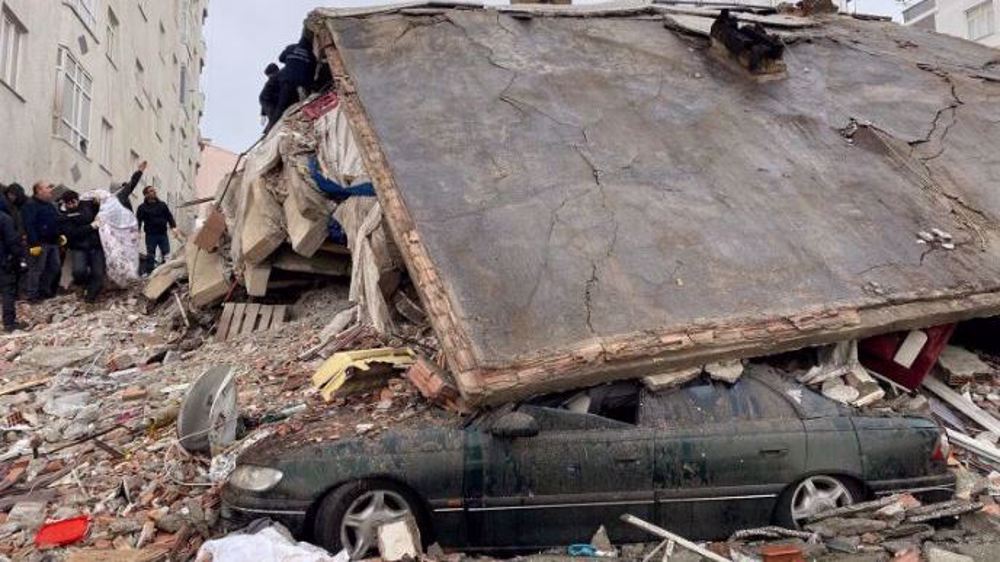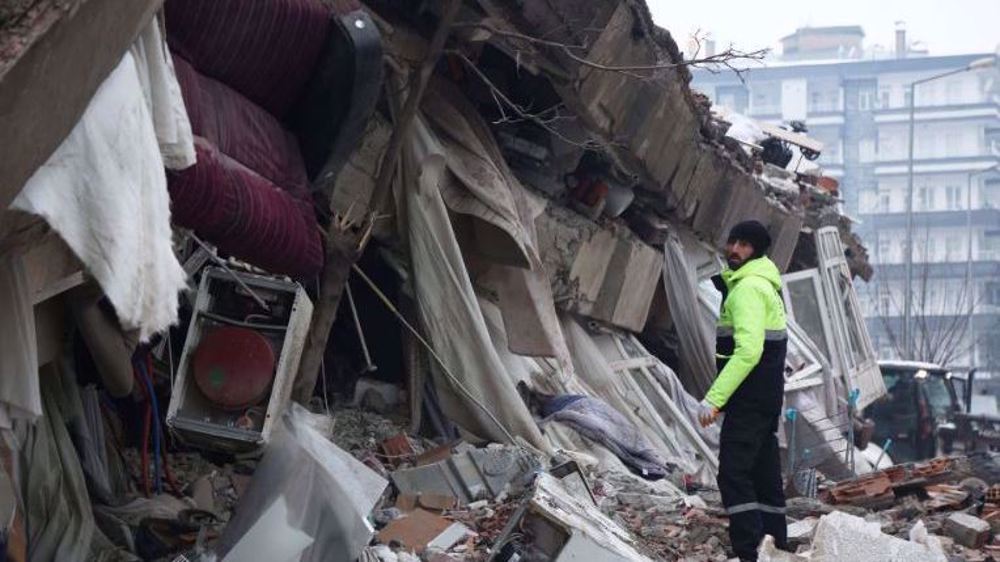JUNE 30, 2023
BY MATTHEW HOH
I speak of peace, therefore, as the necessary rational end of rational men.
~PresidentJohn F. Kennedy, American University, June 10, 1963
Following an essay I published earlier this month and the letter the Eisenhower Media Network ran in The New York Times in May, I have heard forceful and passionate protests that Russia had no other option but to invade Ukraine in February 2022. Frankly, I find quite bewildering and concerning this intense insistence that the only option available to Russia was to launch a cross-border invasion, conduct a deliberate occupation of a sovereign country, and commit a clear violation of the Nuremberg Principles and international law.
So far, pre-emptive invasion and occupation have resulted in the deaths and wounding of hundreds of thousands; created over 10 million internal and external refugees, including roughly 3 million into Russia; initiated massive and lasting environmental destruction; and threatened a nuclear world war through dangerous escalation. The execution of this lone and, so by extension, necessary option, as described by its apologists, has achieved limited territorial gains while strengthening NATO. Without a negotiated political settlement, the February 2022 choice of invasion and prolonged war offers continued destabilizing and ruinous violence, accompanied by the ever-present risk of apocalyptic escalation and the emergence of Pandora’s Box opportunities, e.g., a mercenary army on the road to Moscow this past weekend.
While currently successfully achieving its deliberately limited territorial goals, Russia has set forth long-term strategic and political events that undermine its objectives. NATO cohesion and public support are at a point greater than at any time since 1991, NATO armies are modernizing and being funded at historic post-Cold War highs, and NATO membership has expanded along Russia’s 800-mile-long Finnish borders (Swedish and Finnish public support for NATO membership, as has overall Ukrainian public support for NATO membership, has increased markedly since February 2022). Importantly, the US missile bases in Poland and Romania, which Russia understandably sees as a legitimate threat, were never going to be affected by an invasion and occupation of Eastern Ukraine. Even if it were to end tomorrow, the invasion and occupation have now given those US missile bases, along with all of NATO, a raison d’etre that will last at least a generation.
This invasion and occupation have strengthened the position of the right-wing, the nationalists, and the hard-liners in the Ukrainian government and society, including Nazi elements. In the coming years, NATO will build out Ukraine to its standard to include long-range attack aircraft and missiles and eventually ships that can contest Russia in the Black Sea. This arming will occur whether or not Ukraine becomes a formal NATO member. As mentioned, it will give a reason for being to NATO, and it won’t just be any reason; instead, it will become a form of holy obligation. If this horrible war ends, and Russia maintains the territory it has seized, re-taking that territory will become an obsession of religious intensity, a purpose-affirming crusade for many in NATO.
Looking forward, I don’t believe a Russian victory over Ukraine, akin to a World War II-style subjugation, is possible. I don’t think that was ever their goal, and it was never possible. As stated by the Russians, their goals were control of eastern Ukraine, including establishing a corridor to Crimea, a demilitarization of Ukraine through the destruction of the Ukrainian military, and de-Nazification.
Regarding the first goal, the Russians may be able to defend what land they have taken, maintain a stalemate, and perhaps re-take and take incremental territory after this current Ukrainian offensive. However, the Russians, even with their reserve forces, the potential for conscription and further mobilization, and large military-industrial capacity (severely underestimated by the US and NATO before the war and still unrecognized or dismissed by many US and NATO pro-war fabulists) don’t have the ability to march on and conquer Kyiv, nor should they want to. An occupation of hostile central and western Ukraine would be a nightmare akin to the US occupations of Afghanistan and Iraq.
The second goal, the destruction of the Ukrainian military, has not been met in any permanent sense because of the commitment of the US and NATO to build Ukraine into a de-facto NATO army. Yes, tens of thousands of dead and wounded Ukrainian soldiers and thousands of pieces of wrecked machinery and vehicles are the direct consequence of the violence of the Russian Armed Forces and their mercenaries. Ukraine has its mobilization and training troubles, and the stocks from which the West has provided Ukraine weapons, ammunition, and equipment are running low. The ability of the Ukrainian military to forcibly remove Russia back to its February 2022 borders is exceedingly doubtful. Only the introduction of a US and NATO army of hundreds of thousands would be able to accomplish such a task – thankfully there does not appear political will for such an expedition.
This current offensive by Ukraine could lead to a depletion of men, units, equipment, and ammunition that could cause a collapse the Russians could exploit; such over-extending, exhausting and calamitous offensives have led to defeat throughout warfare. But I don’t believe such an event is likely, because of both the real limitations of the Russian army and the Kremlin’s strategic and political desires. I also don’t believe the Ukrainian offensive will meet its objectives. There will be nothing other than stalemate, which will resemble the second half of the Korean War with its trench warfare and limited offensives. Based upon Russian performance in their 2023 winter offensive, the heavy use of minefields and the effective use of drones, the challenges of extending logistics and lines of communication deeper into Ukraine, and the ugly reality of occupying Central and Western Ukraine, the Russians will likely continue to consolidate and strengthen their position in Eastern Ukraine. Yes, both sides may launch over-hyped offensives in the months and years to come if there is no ceasefire and negotiated political settlement. Still, I don’t believe either side can ever achieve military victory, which, effectively, is what the goal of demilitarization is. The best the Russians can do is to declare a triumph over what they have already seized and destroyed.
The third goal, de-Nazification, has previously been addressed with the political forces in Ukraine that Russia describes, correctly to a degree, as Nazis, strengthened due to Russia’s invasion.
Of the three Russian goals of this invasion, the first, limited territorial conquest/liberation (depending on your partisanship), has been arguably successful. While the second goal, the demilitarization of Ukraine, has become a war of attrition with a sacred long-term US and NATO commitment to fully arm Ukraine. The third goal, de-Nazification, has failed at the strategic and political levels.
While defeat on the battlefield is not likely for Russia, neither is victory. It has already been mentioned, but it bears mentioning again foreign wars almost always have a domestic political cost. Russia’s economic, monetary, and financial success over the last year has been remarkable, and its increased ties to other nations, such as becoming the leading fossil fuel exporter to China and India, the first and third biggest economies in the world, is extremely significant. The rejection by dozens of nations of US demands to get in line with its Russia policy is equally important. However, in its essence, war is about being able to waste more than your enemy.
Russia can point to support from many nations, including China and India, yet that support is nowhere near as concrete, whole, and dependable as US and NATO support for Ukraine. With its dollar, the world’s reserve currency, the US can fund this war for as long as there is political will in the US. The dollar’s primacy may now be under assault, but that assault is nascent, and although replacing the post-World War II Bretton Woods monetary system is worthy and needed, such an international replacement for the dollar won’t come soon enough to assist Russia against Ukraine. The great waste of the war in Ukraine will eventually affect Russia politically, economically, materially and spiritually. I can’t finely predict how it will do so, other than knowing the longer the war goes on, the more the war will require greater waste. This war is not fundamentally any different from other wars and the consequences will likely be the same.
Such is how I view the accomplishments of Russia pursuing its supposed only option in February 2022.
To the question of other options, there were many options, economic and diplomatic, available to Russia in February 2022. An energy embargo on Western Europe would have been an obvious possibility. Closing the borders and limiting trade with Ukraine was another choice. If you desire something more historical and theatrical, a naval blockade of Ukraine was imaginable.* Efforts to subvert American economic and monetary hegemony and create alternate trading mechanisms through partnerships with other nations were options. As discussed, we are seeing those efforts play out now.
Meanwhile, diplomatic measures would have sustained the world’s attention and built international support for Moscow. International support for multi-polarization efforts and de-dollarization and the growth of organizations like BRICS and SCO is in large part built upon the bullying, predation, and mendacity of the US and its Collective West partners. Continuing to demonstrate US and NATO misdeeds and bad faith, such as failing to uphold the Minsk II Accords, while not launching an illegal pre-emptive war with its inevitable brutality and war crimes, would have continued that work while laying claim to moral authority.
There are readers now scoffing at such diplomatic options; however, such opportunities were available before the invasion. I say this based not on my assumptions and observations but on what Putin’s advisors said. On February 21, 2022, in a televised meeting, several senior members of Putin’s government, including Foreign Minister Sergey Lavrov, the former President and Prime Minister Dmitry Medvedev, the current Prime Minister Mikhail Mishustin, and the head of the foreign spy service Sergey Naryshkin advanced the idea of diplomatic efforts rather than war, particularly recognizing Donetsk and Luhansk oblasts as sovereign entities (similar to the US and NATO recognition of Kosovo). Among other comments offered during the meeting, Lavrov stated talks were progressing with the West, and Medvedev predicted tensions with the West would subside. Based on that televised meeting days before the invasion, it appears that senior members of the Russian government accepted that there were options other than invasion and occupation.
The reality is Russia had a whole range of alternatives, from doing nothing to initiating a full-scale nuclear war. In the aftermath of Russia’s invasion, David Swanson provided 30 such examples of what Russia could have done otherwise.
The pre-emptive invasion was not only their only option, it also wasn’t their best option. Success in Ukraine to Russia comes as ownership of a demolished, poisoned, and evacuated portion of Eastern Ukraine, an expensive occupation and war of attrition that history tells us will ultimately have a domestic political cost, and a strengthened and rejuvenated NATO. Such a foreign enemy may be politically beneficial to Putin just as Putin and Russia are politically beneficial as bogeymen to the US and NATO. However, the events this past weekend with the Wagner mercenary forces are problematic for Moscow, to put it modestly, and demonstrate quite well how Frankenstein monsters are common elements in modern war. All of these complications, consequences, and inconveniences of war metastasize over time, and while the war might seem manageable now, in 6, 12, or 24 months, today’s current state of the war may appear as halcyon memories of yesterday to Moscow.
I understand there is a difference between available, desired, and politically possible options. I once shared an interview on Al-Jazeera with a former Taliban minister who spoke quite eloquently and poignantly on his failure to make his fellow Taliban leaders understand that George W. Bush had very few political options following the 9/11 attacks. Even if such political limitations were the case, President Bush had other options in the weeks and months after the 9/11 attacks. The Bush White House again had other options in 2003 but chose invasion and occupation, just as the Obama White House in 2009 chose escalation in Afghanistan. In both cases, Presidents Bush and Obama claimed they had no other option than military aggression. They used the same arguments against Bashar Assad and Muammar Gaddafi.
This is what is troubling about the argument that Russia had no other options: it validates the Bush, Obama and Trump wars against Afghanistan, Iraq, Libya and Syria. Likewise, it allows the Saudis to say there was no other option than to bomb and blockade Yemen and slaughter and starve 400,000, and it lets the Israelis say that they had no other choice than to send Apache gunships into Jenin this past week. I think it is fair to guarantee that if, or maybe when, the US and Israel attack Iran, a no other options argument will be provided.
We can have a peaceful future by standing with international law and against all cross-border wars of aggression. Violations of this basic framework of sovereignty and international affairs wreck any chance of advancement in relations and deeply damage the institutions and structures available to us and future generations. If we have any chance at mitigating climate change, advancing human rights, ending occupations, and dismantling our nuclear doomsday machines, it must come through solid international institutions, through trust, cooperation and diplomacy, and through adherence to international law.
No matter how big the white hats we think we wear, regardless of which side we support, the reality is that war is a force outside of human control, one that will make our righteousness and morality an agent of its destruction. The war in Ukraine is not a simple war of good vs evil. The costs of this war will far outweigh any offered rationales, righteous Manichean arguments or apologies made by either side. We still are unaware of the coming consequences of this war, just as in 1915, the idea of war for another three years, the loss of empires, the Spanish Flu, or a second world war were unimaginable.
Whoever “wins” in eastern Ukraine will win a land depopulated and bastioned by destroyed infrastructure. This land will be polluted for generations by the military toxins of war and ridden with land mines and unexploded ordnance. Very likely, Ukrainian mothers will suffer the same as Iraqi, Afghan, and SE Asian mothers by giving birth for generations to dead, deformed, and sick children due to the undying toxic legacies of modern war. Children and their families, decades from now, will be punished for this madness in Ukraine, just as children and their families continue to be punished throughout “post-conflict” countries. Years from now, as they still die and suffer, will you tell them there was no other option?
The Russian people currently support the war, and this has shored up domestic political support for Putin; in fact, it seems as if the most substantial opposition to Putin comes from those who feel the war is not being waged hard enough – which should give everyone who is bellicose and buoyant on the war in the West pause. Do those present domestic political benefits to the Kremlin, along with Moscow’s middle finger to the US and NATO, outweigh the risks that come with forever conflict in Ukraine for Russia? Is the massive and catastrophic killing, suffering, and destruction, the forever obscene sorrow, horror, and guilt that will not end when the guns go silent, justifiable based on the acquisition of land destroyed, depopulated, and polluted?
The centenarian war criminal Henry Kissinger did get some things right. One of Kissinger’s most famous admonishments, lost on Democratic and Republican White Houses and American media over decades, is that you don’t judge a policy by how it starts but by how it ends. This supposed sole Russian option of pre-emptive invasion and occupation has put Russia into a position that might have met limited and immediate territorial objectives and solidified a storyline of defense against encroaching foreign powers, of which there is a good deal of truth. But with the death and the destruction, the consecration of NATO, and the future uncertainty and instability, how can it be argued that invasion was the best option, let alone the only option?
I understand others may say Russia had no other option, just as I can go and visit with many in DC who will continue to say Presidents Bush, Obama and Trump had no other options for their wars. Such a defense of Russia’s invasion comes to me as partisan and not principled, as seeking victory rather than peace and dismissing suffering for the sake of a narrative. It falls into the binary trap with which our political and media structures demand we accept. Either with us or against us, as George W. Bush would say.
However, there is always another option other than war. To allow ourselves to be banded into one of two camps is a betrayal of our intellectual and moral duties. “Neither King nor Kaiser!” the martyred Irish rebel James Connolly proclaimed. We can say No to NATO and Russia Out of Ukraine. We can oppose oligarchs in DC, London, Kyiv and Moscow. We can support the people of Ukraine and the people of Russia while condemning the war crimes of all governments. We can always find options other than war and we can always believe peace is possible.
*Blockades and other forms of coercive economic measures are war crimes, just as the US sanctions against are war crimes. More than 1 in 4 countries are under US, EU and UN sanctions.
Matthew Hoh is a member of the advisory boards of Expose Facts, Veterans For Peace and World Beyond War. In 2009 he resigned his position with the State Department in Afghanistan in protest of the escalation of the Afghan War by the Obama Administration. He previously had been in Iraq with a State Department team and with the U.S. Marines. He is a Senior Fellow with the Center for International Policy.
Filed under: 9/11, Syrian President Bashar Al-Assad, Ukraine, US-led NATO Alliance, USA, Vladimir Putin | Tagged: de-dollarization, Denazification of Ukraine, Dmitry Medvedev, Eastern Ukraine, Jenin: A new Gaza, Kiev Nazi Regime, Kissinger, Lavrov, Muammar al-Gaddafi, Ukraine disarming, US Empire of Sanctions | Comments Off on Destroying Eastern Ukraine to Save It


































